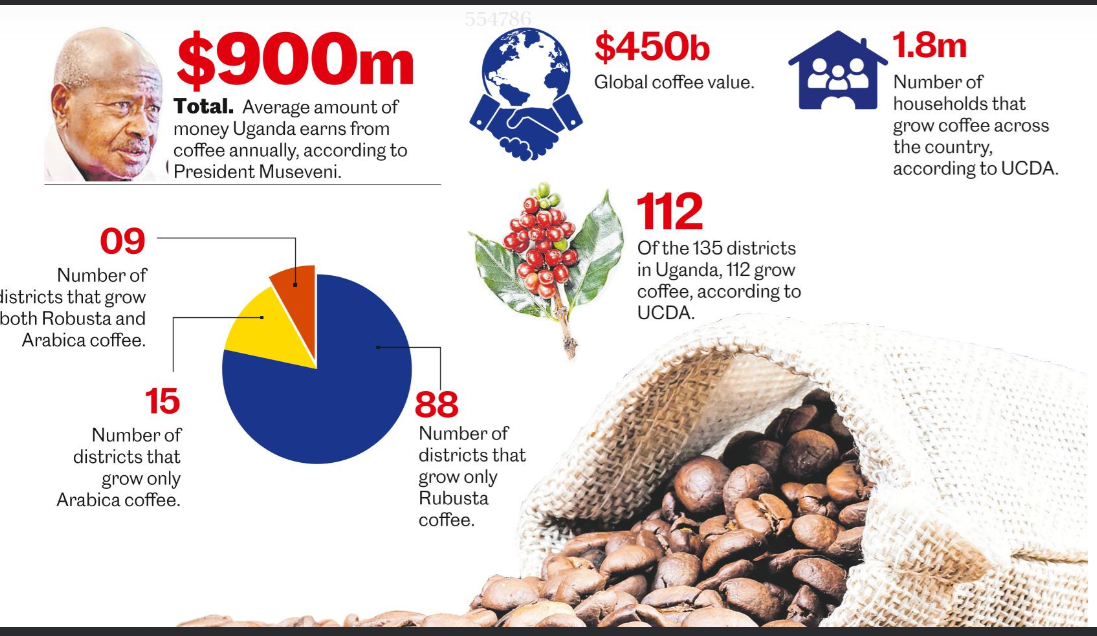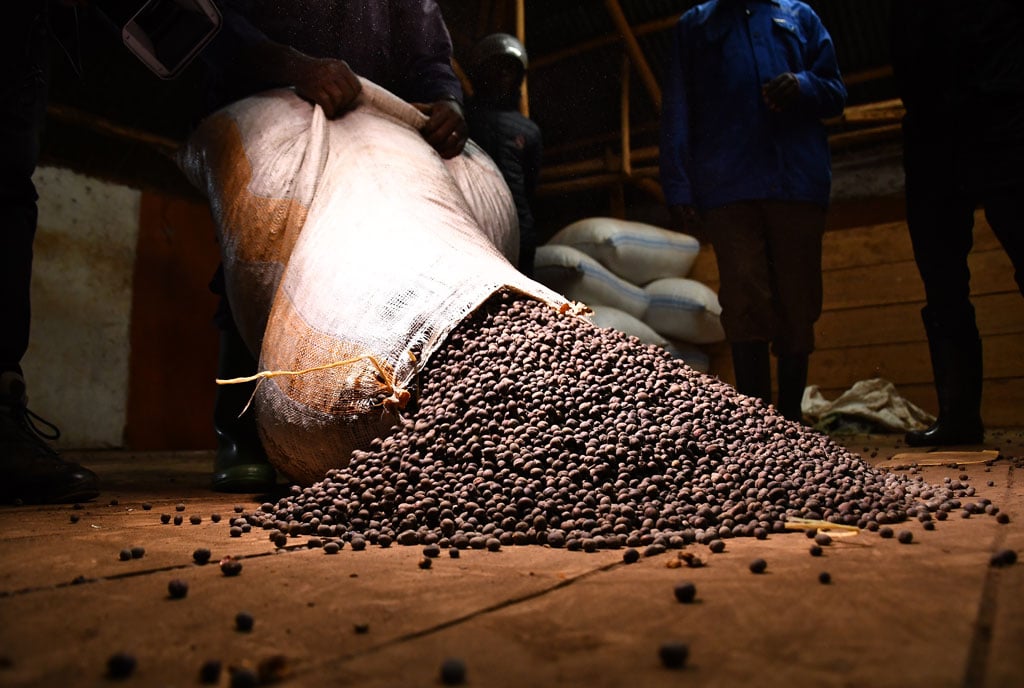
Mr Esau Barigye (left) engages residents at his coffee platation in Kashumba Sub-county in Isingiro District. Photo/Rajab Mukombozi
On a visit to Busungwa Cell in Kigaragara Parish, Kasumba Sub-county in Isingiro District, we find Mr Esau Barigye, 52, and his wife, Ms Edita Barigye, 43, digging holes in their banana plantations.
We first think they (holes) would be deposits for organic manure to boost the production of their banana plantation.
But Mr Barigye tells us that recently, the bananas have started developing some diseases.
He is now planting coffee so that in case diseases wipe out the banana plantation, the coffee can be an alternative source of income to his family.
A few metres from the banana plantation, he takes us to his coffee plantation, which is less than four years old, but also the land adjacent to his has been cleared, as well as holes dug to plant coffee trees.
Mr Barigye says the family’s love of coffee started with his father but later abandoned it since it had become less productive.
“My father was one of the richest people in our village because of coffee growing. He had one of the best houses and educated his children. I remember my sister was the first person to get a degree in the whole village because of coffee but it was later abandoned, maybe the market went down,” he explains.
He, however, said some years back he visited one of his friends in Rakai District who told him that he was earning more than Shs100 million every season from coffee harvests.
“After my friend told me that he was earning that much from coffee, my mind also raced at the past days and how the crop became a wonder crop in our family. I chose to start coffee growing again,” he narrates.
In 2020, he ventured into coffee growing because of his experience with the cash crop and can no longer depend on banana growing.
“In 2020, I was given 8,000 seedlings from Ankole Diocese, which I planted on one-and-a-half acres of land, and in the first season, I managed to get Shs2.5 million. You might think it is little but just the first harvest it is too much," he says.
After harvesting in April 2024, he sold his clean Robusta coffee beans at Shs13,000 each kilogramme.
He is now expanding his plantation to five acres where he expects to plant 50,000 coffee plants and earn more than Shs150 million.
Mr Barigye adds that he was able to use proceeds from coffee in his first harvest to pay school fees for his children.
He explains that the locals at first had failed to embrace this crop and are now rushing to plant coffee because of its rising prices.
He, however, explains that he and other coffee farmers face adverse climate change effects.
“We have a challenge of drought because some of the coffee plants have dried up. My appeal to the government is that it extends us water for irrigation,” he adds.
Mr Barigye decries a lack of extension services that at times limits them to access advisory services for increased production.
“We need advice on some of the good practices like pest control but extension workers are never seen. We appeal to the government to recruit enough extension workers to guide us on how to do farming,” he adds.
Reverend Abel Twinamatsiko of Kigaragara Archdeaconry in Kashumba Sub-county explains that the church is involved in poverty eradication projects because leading poor people is challenging.
Coffee prices
Currently, a kilogramme of clean coffee beans is sold at between Shs15,000 and Shs13,000 in Ankole Sub-region. Average coffee prices for Robusta Kiboko coffee stood at Shs3,900 ($1.03) per kilogramme in October 2023, while Fair Average Quality Robusta coffee fetched Shs7,650 ($2) per kilo during the same period. The average market price for Arabica parchment stood at Shs9,250 ($2.45) per kilo in October 2023, a Uganda Coffee Development Authority report showed last year.






